Iranian conditions for JCPOA revival
Iran has been subject to stringent monitoring by the IAEA since the JCPOA was signed in 2015. The constant checks by the UN’s Nuclear Watchdog have verified Iran’s compliance with the terms and conditions of the deal a total of 15 times.
But the tables have turned. Iran got barely anything more than promises, for its compliance.
Iran will return to full compliance with the terms of the nuclear deal, if and only if, the US lifts all sanctions on Iran in one move.
This may result in both sides leaving table with nothing to show for it.
Iran has learnt from experience and will not be taken in twice; this time Iran insists it shall be the one doing the verification.
Tehran will verify sanctions have been lifted, and will only then begin returning to its commitments under the JCPOA. So far the Iranian strategy has at least gotten the US seriously thinking; even willing to take the first step in reviving the JCPOA.
Iran’s insistence in performing checks and balances before recommitting to full compliance stems from a profound distrust of the US. The US earned this distrust on several occasions, even before the 1979 Islamic Revolution when Iran and America were fast friends.
There have been many indicators that the Americans were taking measures to prevent Iran from acquiring peaceful nuclear technology. Americans themselves did not engage with Iran, but the Germans signed a contract to build the Bushehr power plant. They did their utmost to ensure that Iran wouldn’t advance past a certain point. Evidence suggests if it wasn’t for the 1979 Islamic Revolution, Americans wouldn’t let Iran acquire peaceful nuclear technology.
Amir Ali Abolfath, US Affairs Analyst
The US banana republic
The point that Biden and people like Antony Blinken were making before they got into office about trump leaving the agreement is actually true that if countries realize that you make agreement with one administration, and once that administration leaves the agreement is nullified by the next administration, no one is going to be able to make any agreements with the united states. So US says that it’s an important country but when it comes to international agreements it acts like a banana republic.
Dr Foad Izadi, Professor of International Relations, University of Tehran
The INSTEX illusion
Even prior to the Trump administration's re-imposition of secondary sanctions in May 2018, after the US unilaterally pulled out of the nuclear deal, Iran was not receiving the full benefits of sanctions relief.
The primary barrier was that major banks were reluctant to facilitate transactions or provide financing for Iran-linked projects. So most of the milestone deals signed with a vision of the JCPOA working, hit a roadblock.
Iran had placed orders for Boeing and Airbus aircraft, had attempted joint ventures with automakers Renault, Peugeot, and Daimler, had struck energy deals with Total and CNPC, and rail projects with Siemens and Alstom.
But even before Trump, a shady republican, was elected to office, the corporations lost faith in the nuclear deal and Iran’s economic stability.
As expected they thought it too risky to venture into Iranian waters.
You see, in the past 4-5 years, Europe has talked about INSTEX and the revival of the J-C-P-O-A. Mr. Rouhani downplayed the importance of the matter, saying the P5+1 has turned to P4+1. But we can’t look at the issue optimistically. In the past two or three years, we’ve witnessed the assassinations of General Qassem Soleimani and Mr. Fakhrizadeh. There has also been the recent incident at Natanz. We can’t take these lightly just because we’re negotiating with Europe. Europe is basically powerless.
Saeed Ajorlu, Editor in Chief, Mosallas Weekly
Former US president Trump renewed Iran’s distrust in 2018 not just by pulling out of the deal and comically re-imposing UN sanctions.
As the Iranian foreign minister Zarif put it: the US had imposed, reimposed, or relabeled some 1,600 sanctions on Iran, inflicting $1 trillion worth of direct and indirect economic damage on Iran.
In fact Trump’s scorched-earth sanctions policy has done everything to make it impossible for President Biden to return to the JCPOA.
We don’t know if Biden wants to because Biden generally belongs to the right wing of the Democratic Party, he is very close to the Israelis. Whether he wants to go back to the JCPOA is very much in doubt.
Dr Foad Izadi, Professor of International Relations, University of Tehran
Just 2 years after their pullout from the deal, in 2020 Trump administration officials spun sanctions with new designations – namely “terrorism” and “human rights abuses” – on already-sanctioned Iranian individuals and entities in an effort to make it more difficult for a potential Joe Biden administration to return to the nuclear deal.
If there is any way that the JCPOA can be brought up to speed with what was intended in 2015, Iran shall make sure that actually happens, that sanctions have been lifted in practice "and not only "on paper". That sanctions have actually been lifted would take a certain amount of time to verify.
Parliament estimates it’ll take 3 to 6 months and that the verification process must be continual should be performed once every 6 months, to make sure Iran’s economic interests are being secured.
Barak Obama, America’s signing president, himself said the deal was not built on trust but verification of compliance.
Consequently, Iran was under constant surveillance by the UN nuclear body, the IAEA.
Now Iran expects to do the surveillance. One option might be to establish a new panel of experts or special rapporteur at the United Nations responsible for gathering, interpreting, and assessing evidence on the implementation of sanctions relief.
Unfortunately, this is the bitter reality of the international system. We aren’t dealing with a just system. The great powers abuse their authority and follow international law wherever it’s politically expedient, and disregard it when it’s not to their benefit. There’s a lack of a higher authority to prosecute those countries. Of course, there is an International Court of Justice and Criminal Court, but Americans often do not comply with their rulings.
Amir Ali Abolfath, US Affairs Analyst
Exactly what would verification mean? It means Iran must be able to sign its oil contracts and export it and bring in its revenues via banking channels or consider other uses for it.
One must not forget that the whole idea of the JCPOA was to boost Iran’s economy and foreign trade relations, in return for Iran limiting its nuclear programme, which it has maintained is for peaceful purposes.
I think we certainly can regain our power by taking an appropriate approach and analysis of the regional issues. But today, the Iranian people are feeling psychological and economic insecurities. This is the result of believing that dealing with the US will solve all problems. They tried it out and realized that it wasn’t possible.
Didn’t Mr. Biden say he would return to the JCPOA once he takes office? Why hasn’t he returned? Why is he saying he won’t resume full compliance until Iran does?
We have the experience of drawing up a legal contract and signing and verifying it. But after all that, they might tear the agreement apart someday.
There’s no guarantee in place whatsoever.
Saeed Ajorlu, Editor in Chief, Mosallas Weekly
Why did the United Nations establish such a verification mechanism?
There are a number of reasons for this.
First, the nuclear deal is enshrined in United Nations Security Council Resolution 2231. That obligates “promoting and facilitating the development of normal economic and trade contacts and cooperation with Iran.”
Second, the IAEA, a United Nations agency, is already involved in verifying half of the nuclear deal’s quid-pro-quo.
Third, Iran has itself turned to United Nations bodies to file a lawsuit at the International Court of Justice against the US for not upholding its end of the bargain under the JCPOA.
Fourth, the issue of sanctions relief impacts Iran’s relationships with the wider international community, namely, non-JCPOA countries that wouldn’t want to raise their concerns at a forum dominated by the US.
Impartial countries that share economic interests with Iran and cannot afford the blow of secondary US sanctions imposed on dealings with Iran, such as Venezuela, Cuba, Syria, and North Korea.
As a matter of fact, this is how we should speak to the people. We must explain that our attempts at establishing ties with the West have hurt us. We have shown goodwill to the West, Europe, U-S, Russia, and China. But the upshot was more sanctions on the oil and banking sectors, yet we remained committed to the agreement. More importantly, there have been a few terror attacks, both against our high-ranking officials and our nuclear sites. In my opinion, we need to send them messages through political, military, and security means. We can’t stop at the political level. We can define new relations on an international level.
Saeed Ajorlu, Editor in Chief, Mosallas Weekly
The insurance and shipment of Iranian oil tankers as well as the global money transfer SWIFT mechanism are among Iran's top priorities in securing oil sales and incoming petrodollars.
"It is being discussed what should be done regarding Iran's technical commitments, and how they be carried out, in case a party reneges on their promise”, said Kazem Gharibabadi of the Early April nuclear talks in Vienna. Gharibabadi is Iran's ambassador to the UN's nuclear watchdog and a delegation member to the said Vienna talks at which Iran explored options to prevent a potential repeat of what happened in 2018 when Donald Trump binned the nuclear deal and yet expected to have a say in its implementation.
When they say come and talk to us, what they actually mean is that you come and give us more concessions and stuff and Iran is not interested in doing that because the concessions Iran gave last time resulted in almost nothing for Iran. So, what would you want to sit down with the same people that you gave them concessions before and they didn’t do much?
Dr Foad Izadi, Professor of International Relations, University of Tehran
As the Vienna nuclear talks proceeded, Iran did say it was in no hurry for results. Results are what it is looking for.
But if the US must procrastinate, Iran will carry on with enriching uranium to levels higher than that stipulated in the nuclear deal.
That’s to say it is producing and storing enriched uranium with a 20-percent purity level, breaking the 3.67-percent enrichment parameter set by the deal. Iran might even go up to 60 percent purification if the country needs it.
Can Israel put a spanner in the works?
Obviously these types of terrorist attacks are not going to stop Iran from continuing its nuclear program, as you saw Dr Salehi the head of Iran’s atomic energy agency said that we are building facilities inside the mountains near Natanz. Israel is actually making Iran’s nuclear program stronger.
Dr Foad Izadi, Professor of International Relations, University of Tehran
It is natural for Israel to feel threatened
Sunday 11 April the electrical grid at the Natanz nuclear site was disrupted. This coincided with the anniversary of the National Day of Nuclear Technology and during Iran's efforts to force the West to lift sanctions.
Hardly a coincidence considering disruption at Natanz has been one of the methods of sabotage in this strategic facility for many years.
Only last July a mysterious explosion shook the plant. Also on Tuesday as the Vienna talks began to revive US participation in the JCPOA, an Iranian vessel stationed in the Red Sea was damaged by an apparent Israeli mine attack.
With such bad will in Iran’s backyard, the US will have to try that much harder to rekindle the deal.
Assassination simpler than negotiation
You know the Israelis have been saying this for some time that in order to slow down Iran’s nuclear program or stop Iran’s peaceful nuclear pogrom, you don’t have to give Iran concessions. You don’t’ have to negotiate with Iran, you don’t need to go to Vienna; you can just destroy Iran, its scientists, its nuclear facilities.
Dr Foad Izadi, Professor of International Relations, University of Tehran
Iran’s Foreign Ministry spokesman Saeed Khatibzadeh in his weekly press briefing on Monday April 12th hinted that Israel might be behind Natanz nuclear plant incident which happened the day before the briefing.
He elaborated on the sabotage at the Natanz nuclear facility in central Iran, saying that many sources link the sabotage operation to the Israeli regime which has frequently threatened carry out such operations against Iran.
“This is not going to impact Iran’s nuclear capability. All centrifuges unplugged were old IR1 type and will be replaced by advanced machines. Iran is not going to be trapped. The Israeli regime takes revenge on Iranian people for their patience and sage behavior. Iran would take revenge in appropriate time.”
It’s typical of the Israeli regime to commit assassinations and acts of sabotage and refusing to assume responsibility for them. Their media, however, report that it was their doing. Our security institutions also know who the culprit has been. There must be a reciprocal action, or else, our silence might send a bad signal to them.
Saeed Ajorlu, Editor in Chief, Mosallas Weekly
In May 2019, a year after the US unilaterally withdrew from the accord, Iran began to scale down its nuclear compliance under Article 36 of the JCPOA.
Iran announced the move was a response to the US withdrawal and the remaining parties’ failure to protect Iran from U.S. sanctions.
There’s no contact between Iran and America. Even with the Vienna talks, Iran even refrained from indirect talks.
The 4+1 states spoke separately to Iranian and to American representatives, and took the results to the other party.
Last week we had republican senators, members of the house, writing a letter to Biden that whatever agreement you will have with Iran, it’s going to end once we go back to the white house and we may get to white house in 2024; who knows. So that’s it. Another criteria in (the) Iranian leader’s calculations.
Dr Foad Izadi, Professor of International Relations, University of Tehran
Foreign MInister Zarif tweeted the “aim” of the meeting would be to “rapidly finalise sanction-lifting & nuclear measures for choreographed removal of all sanctions, followed by Iran ceasing remedial measures”.
“No Iran-US meeting. Unnecessary,” he added.
Even Western European parties to the deal couldn’t, or wouldn’t, do much to find a way around US sanctions, to fulfill their trade commitments to Iran under the deal.
So Iran decided to give them time in inching out of its commitments one step at a time, whilst at the same time finding a way around sanctions itself. Fellow easterners have cooperated in the process. And Iran is still selling oil.
You see, Donald Trump was warned against the same things when he was trying to carry out his threats. Many warned the then-U-S administration that its maximum pressure campaign wouldn’t necessarily work. Iran has been under sanctions for over 40 years and has mastered ways to circumvent them. Many countries are now unwilling to side with the U-S. The international system has been different at the start of the 3rd decade of the current century, compared to the first decade.
Amir Ali Abolfath, US Affairs Analyst
Iran has been openly exporting oil over a million barrels a day of crude oil to China. In late March it even signed a 25-year accord with China to cover any and all economic and infrastructural aspects of cooperation as well as military cooperation.
This has been much to the dismay of the West and Israel resulting in verbal and practical sabotage of the Sino-Iranian agreement.
Proponents say Iran will benefit from turning east, while critics say Iran may be giving up too much in its quest to boost ties with China. Iran has to be alert to details such as the importance of Chinese companies employing Iranians at all levels.
What means of pressure remains for the West?
You see, the US elite are acknowledging this in their media. Just a few days ago, there was an article in the New York Times, warning that the Biden administration didn’t have many options available to it anymore.
It said the so-called maximum pressure campaign hasn’t worked and Iran has increased its nuclear capacities, qualitatively as well as quantitatively. The American elite are claiming, based on their interpretation of Tehran’s capacities that Iran is on the verge of building a nuclear weapon.
Therefore, they argue that US needs to enter into an agreement with Iran as soon as possible.
Amir Ali Abolfath, US Affairs Analyst
Early April saw an Iranian crude production rise, hitting 2.14 million barrels per day in February, according to the latest S&P Global Platts survey on OPEC output.
The leader of the revolution Ayatollah Khamenei said: " I've heard some Americans say today's situation is different from when JCPOA was signed in 2015-2016 and some JCPOA Articles must be changed. That's true. During this time, a government took office in the US that disgraced and humiliated the US. But Iran has earned more power and reinvigorated. So, if a change is to be made, it should be to the benefit of Iran.”
'Gaza has won': Social media users react to ceasefire with mix of relief, joy
Iran seeks South Korea’s assistance for AI, fiber-optic projects
VIDEO | Iran's 'Eqtedar' (Power) maneuver
Israel hits HTS military target in Syria for 1st time since fall of Assad
VIDEO | Press TV's news headlines
Israel has slaughtered 13,000 students in Gaza, West Bank
VIDEO | More Zionist than Zionists: Biden’s legacy to be defined by Gaza genocide
Hamas confirms handing approval of Gaza ceasefire deal to mediators


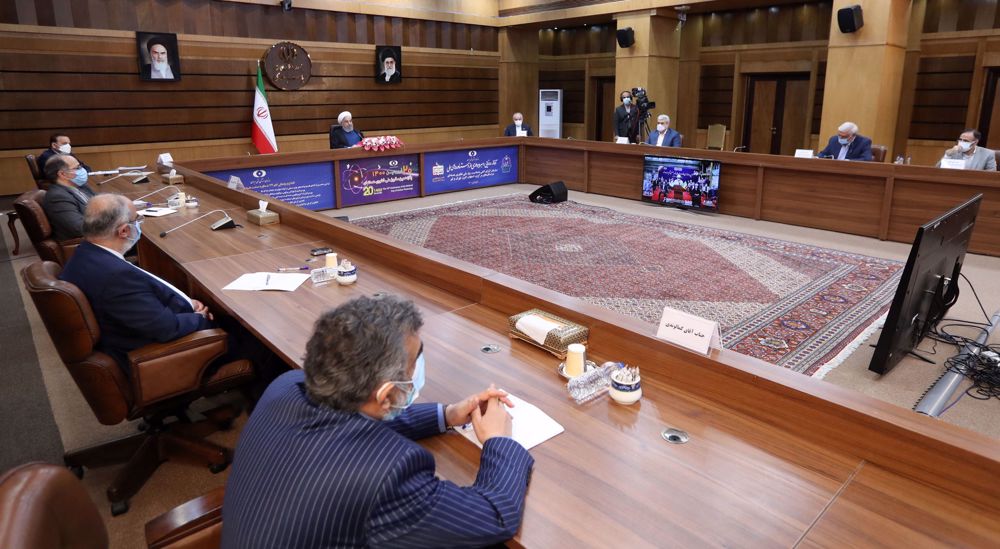
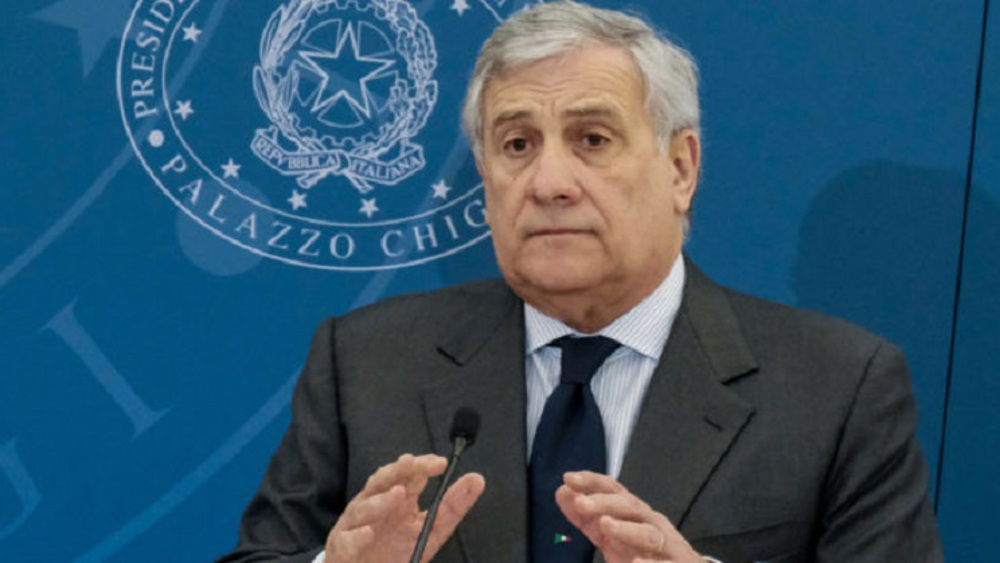

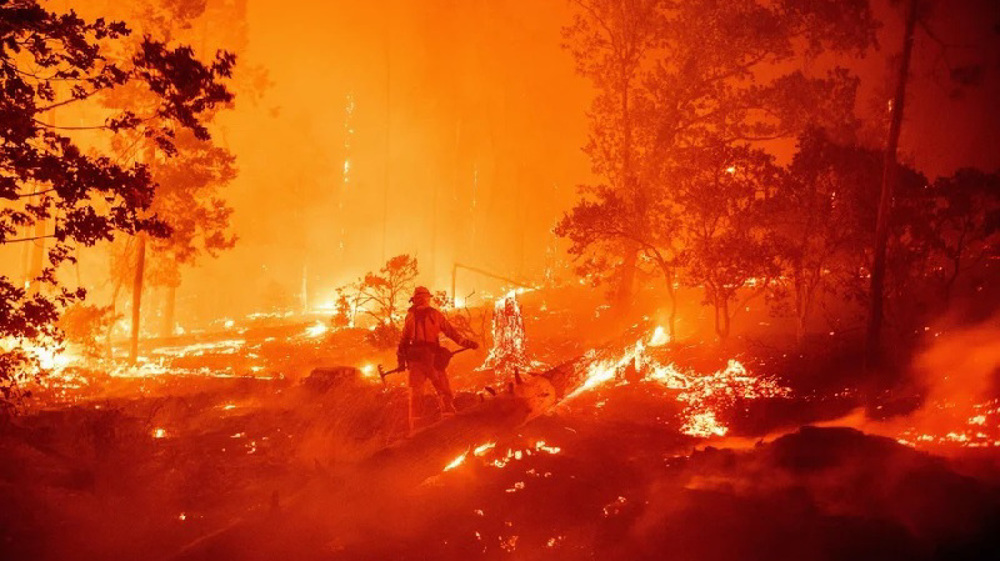



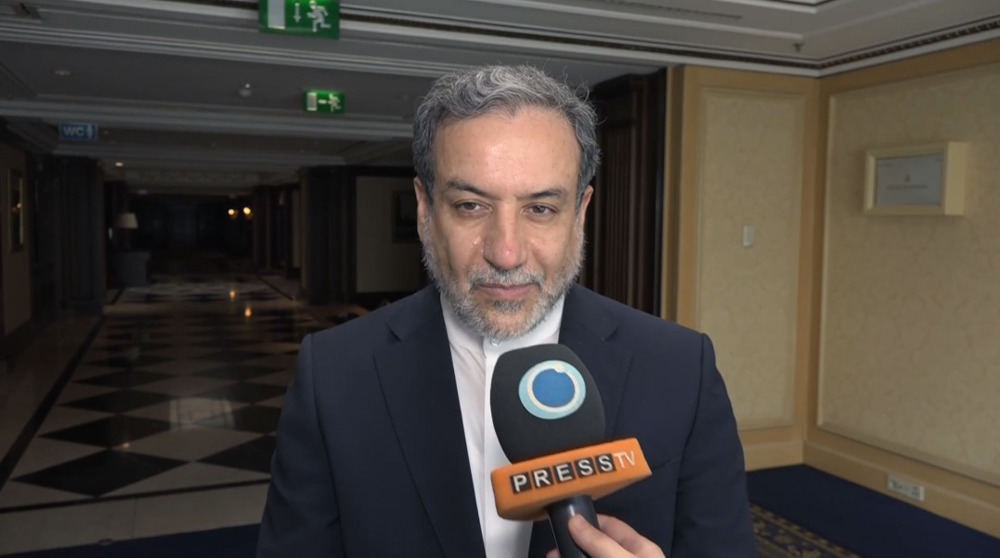
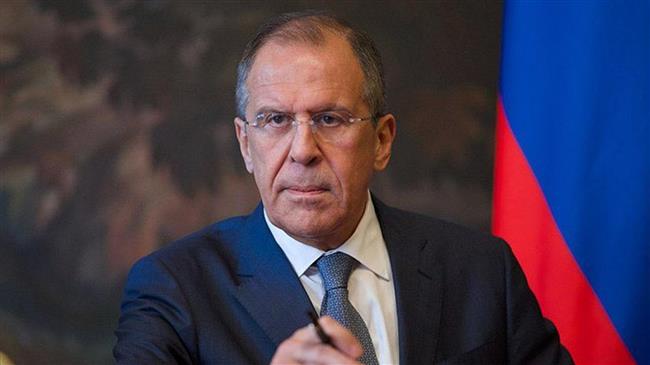
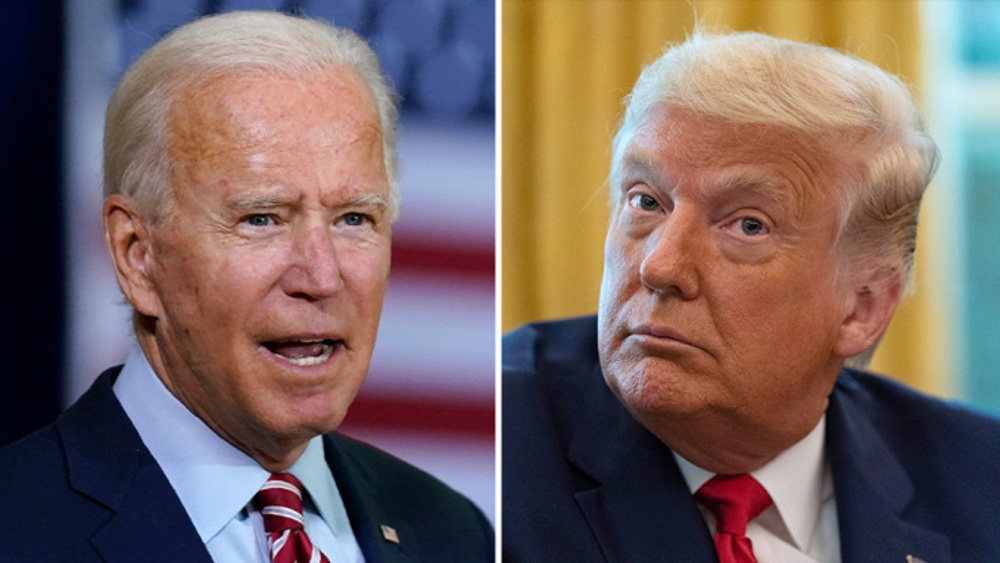
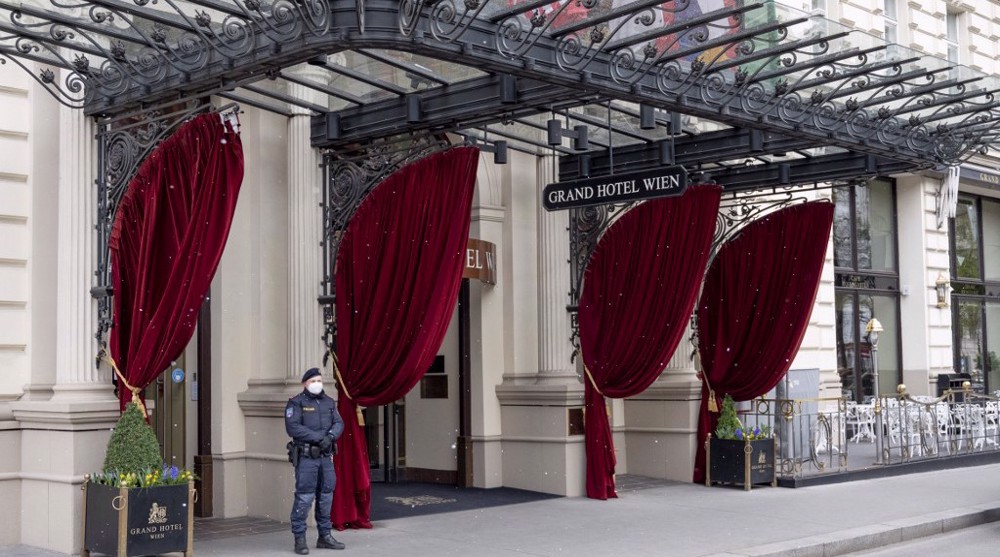
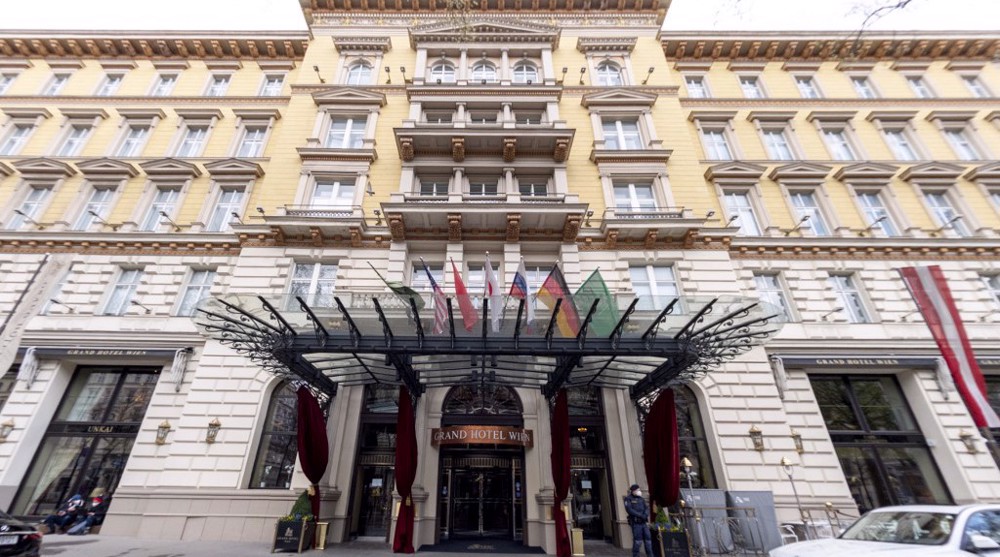
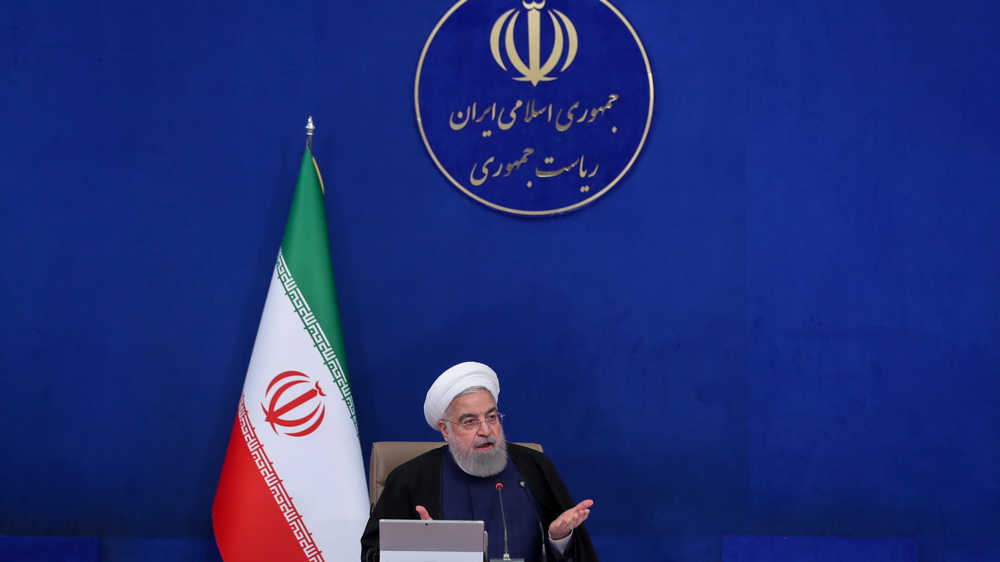
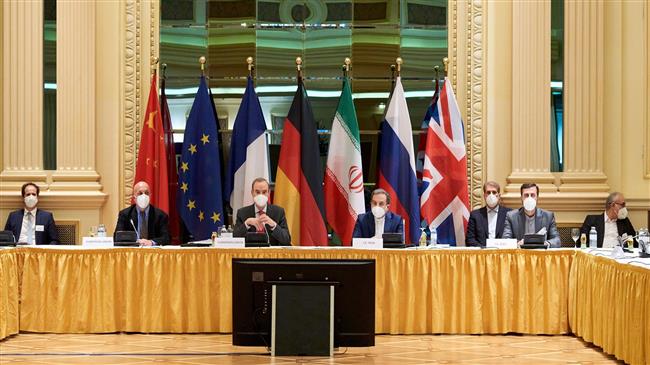
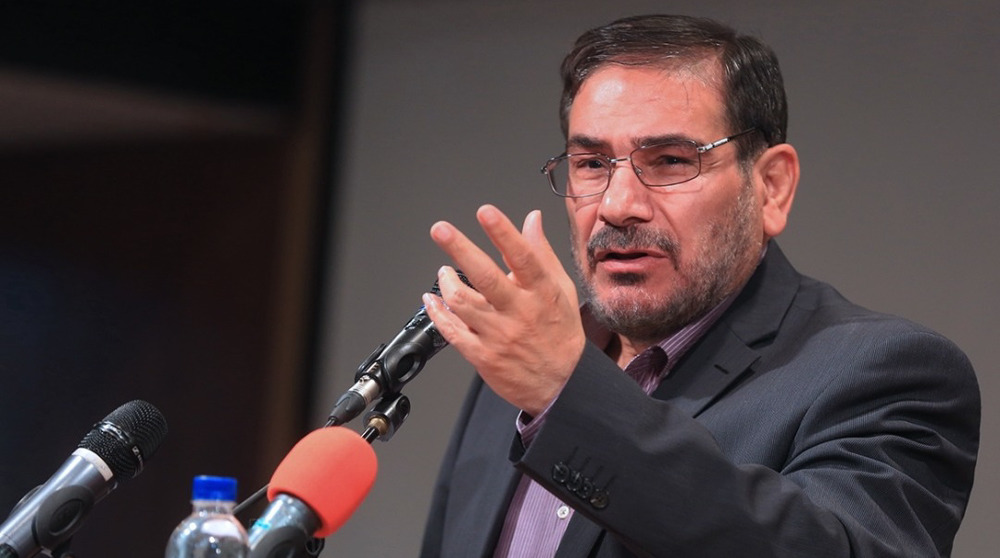
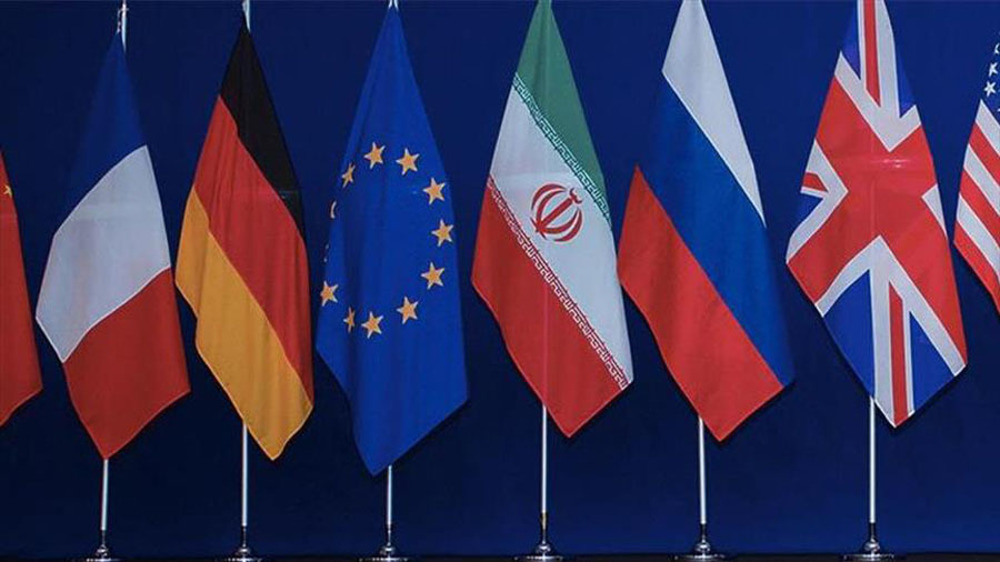
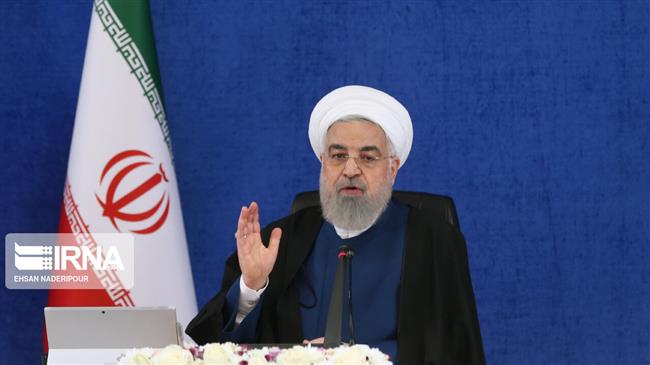

 This makes it easy to access the Press TV website
This makes it easy to access the Press TV website